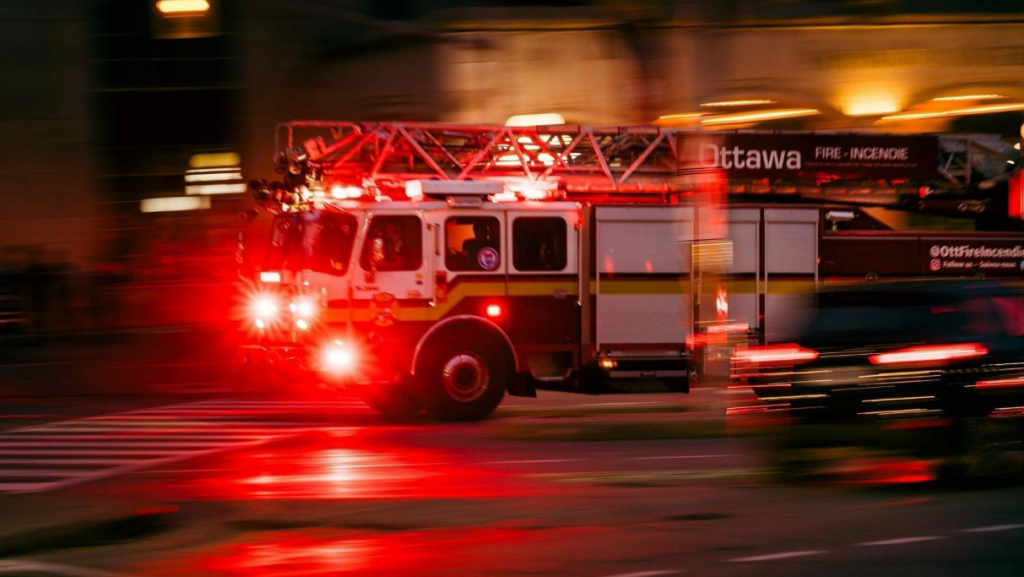Champagne talks global COVID-19 security with G7 foreign ministers over video
Posted Mar 25, 2020 08:18:48 PM.
This article is more than 5 years old.
OTTAWA — Canada and its G7 allies grappled Wednesday with how to address a world that was already filled with security threats and festering conflicts well before COVID-19’s accelerated spread.
Foreign Affairs Minister Francois-Philippe Champagne took part in a video meeting with his G7 counterparts to discuss security issues around the globe related to the COVID-19 crisis.
Their packed agenda underscored the fact that the steady march of the novel coronavirus across the globe hasn’t exactly happened in a vacuum.
While the pandemic mushroomed this past week:
— North Korea test fired two missiles into the sea, rattling nerves in Japan and South Korea.
— An oil price war between Russia and Saudi Arabia broke out.
— The United States threatened to withdraw $1 billion in aid from Afghanistan — the country mired in the world’s longest war — because two of Afghanistan’s presidential candidates can’t agree on who won the last election.
— Autocrats such as Russia’s Vladimir Putin toyed with constitutional measures to cement their hold on power.
“The world’s greatest global security challenges have not disappeared,” said Fen Hampson, a global security expert with the Norman Paterson School of International Affairs at Carleton University.
“When so-called adults are locked down, the truants in the schoolyard will be up to no good when nobody’s looking. That’s a major challenge.”
The G7 meeting allowed the foreign ministers to exchange views on how the pandemic relates to world flashpoints such as Afghanistan, Iraq, Myanmar, North Korea, Syria, and Ukraine and Russia, said a statement from Champagne’s office.
Champagne and counterparts from the U.S., Britain, France, Germany, Italy, Japan and the European Union held the meeting to discuss “international peace and security key issues.”
“As the world faces an increasingly complex political and security landscape that is compounded by the global health crisis of the COVID-19 pandemic, Canada remains committed to working alongside our G7 partners to tackle pressing and difficult global challenges,” Champagne said in a statement.
U.S. President Donald Trump is to host his fellow G7 leaders, including Prime Minister Justin Trudeau, at a summit in June, but it is unclear whether that face-to-face gathering will go ahead as planned.
U.S. Secretary of State Mike Pompeo will likely face questions from his counterparts about Trump’s remarks this week downplaying the seriousness of the pandemic in the U.S. and suggesting he’ll lift orders for Americans to stay at home by Easter.
“It’s going to be really important for the United States’ G7 partners, including Canada, to remind the U.S. leadership of some basic health truths — don’t do anything too stupid, too early,” said Hampson.
Bessma Momani, an international affairs expert with the University of Waterloo, said it’s important that major international alliances like the G7 share resources and intelligence as the pandemic flourishes.
“This is a virus that’s proved the sharing of information, transparency and collective action is required,” she said.
“It’s a zero-sum game if we’re competing for ventilators, if we’re competing for all the medical supply chain components.”
Wednesday’s agenda also included talks on threats to democracy, including foreign interference, as well as terrorism, human rights and protecting the rules-based international order.
Momani said the pandemic has emboldened right-wing extremists and populists, who are amplifying the narrative that if borders were stronger and immigration was stopped, the current crisis would not have happened.
“It really does embolden the quasi make-America-great-again type of sentiment. It’s a harkening back to Fortress America, Fortress Europe, Fortress you-name-it . . . protectionism and inward-looking messaging.”
Momani questioned whether the G7 ministers had enough “bandwidth” to deal adequately with the pre-COVID-19 security realty.
Pompeo defied travel bans and flew to Afghanistan this week and threatened to pull $1 billion in U.S. aid if President Ashraf Ghani and former Chief Executive Abdullah Abdullah can’t agree on which one of them won the country’s last election — a power grab that’s jeopardizing a U.S.-led peace plan to end 18 years of war with the Taliban.
Meanwhile, Putin shelved a plan for a referendum on Wednesday — for now, at least — that would give him the power to be Russia’s president for another dozen years. He’s been in power since 2000.
“It’s not just Ghani and Abdullah in Afghanistan who are obviously playing games and undermining the peace process there,” said Hampson.
“There’s lots of potential for mischief between Iran and Saudi Arabia, stoked by the Russians who aren’t very happy with the Saudis’ efforts to teach them a lesson by sending oil prices into the cellar.
“If you’re Putin sitting in Russia, you might be saying to the Iranians, ‘This is hurting us, this is hurting you, maybe it’s time to teach the Saudis a lesson while the West is preoccupied.'”
This report by The Canadian Press was first published March 25, 2020.
Mike Blanchfield, The Canadian Press








